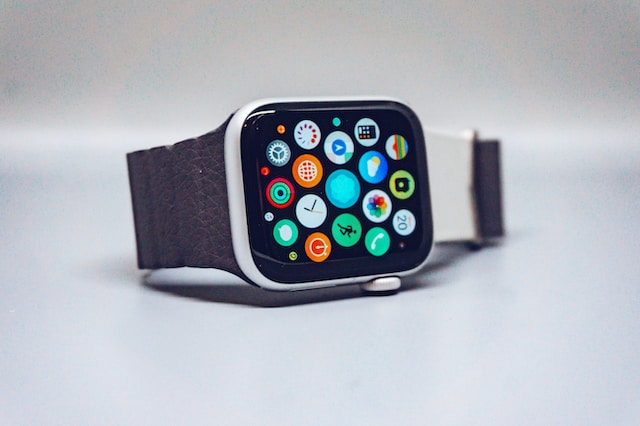Wearable Tech: The Future of Health Monitoring

Wearable technology has evolved from simple fitness trackers to sophisticated health monitoring devices that offer a comprehensive view of an individual’s well-being. As the healthcare industry shifts towards personalized and preventive care, wearable tech is becoming a pivotal tool in monitoring health and managing chronic conditions. This article explores the advancements in wearable tech, its applications in health monitoring, and its potential to revolutionize personal and clinical healthcare.
The Evolution of Wearable Tech
Wearable technology has seen rapid advancements over the past decade. Early devices, such as pedometers and basic heart rate monitors, laid the groundwork for more complex health monitoring systems. Today’s wearables, equipped with advanced sensors, connectivity features, and data analytics, provide real-time health insights and support proactive health management.
- Early Wearables: Initial wearable devices focused on basic fitness tracking, such as step counting and calorie expenditure.
- Advanced Wearables: Modern wearables include smartwatches and fitness bands with sensors that track heart rate, blood oxygen levels, sleep patterns, and more. Some devices are even capable of electrocardiogram (ECG) readings and continuous glucose monitoring.
Key Technologies in Health Monitoring Wearables
- Sensors and Data Collection:
- Heart Rate Monitors: Wearable devices equipped with optical sensors measure heart rate through changes in blood flow in the wrist or chest.
- ECG Sensors: Advanced wearables provide electrocardiogram readings to monitor heart rhythm and detect potential irregularities.
- Glucose Monitors: Continuous glucose monitors (CGMs) use sensors to track glucose levels in real-time, aiding diabetes management.
- Connectivity and Integration:
- Bluetooth and Wi-Fi: Wearables use wireless technology to sync data with smartphones and health apps, allowing users and healthcare providers to track and analyze health metrics.
- Cloud Integration: Data collected by wearables can be stored and accessed via cloud platforms, enabling long-term tracking and analysis.
- Data Analytics and AI:
- Health Insights: Wearables leverage data analytics and artificial intelligence (AI) to provide personalized health insights, predict potential health issues, and offer recommendations.
- Predictive Analytics: AI algorithms analyze patterns in health data to forecast potential conditions, such as arrhythmias or sleep disorders, allowing for early intervention.
Applications in Health Monitoring
- Chronic Disease Management:
- Diabetes: Wearable glucose monitors provide real-time glucose level tracking, helping individuals with diabetes manage their condition more effectively and make informed decisions about their diet and insulin use.
- Cardiovascular Health: Wearables with ECG capabilities monitor heart rhythms and detect irregularities such as atrial fibrillation, aiding in early diagnosis and management of heart disease.
- Preventive Health and Wellness:
- Activity Tracking: Fitness trackers monitor physical activity, encouraging users to stay active and maintain a healthy lifestyle. Insights on daily steps, exercise routines, and sedentary behavior contribute to overall wellness.
- Sleep Monitoring: Wearables track sleep patterns and provide insights into sleep quality, helping users identify factors that may affect their rest and implement strategies for better sleep hygiene.
- Emergency Response and Safety:
- Fall Detection: Some wearables are equipped with accelerometers and gyroscopes to detect falls and send alerts to emergency contacts or services, enhancing safety for seniors and individuals with mobility issues.
- Emergency SOS Features: Wearable devices with built-in GPS and SOS functions enable users to quickly request help in emergency situations, providing an additional layer of safety.
- Mental Health Monitoring:
- Stress and Mood Tracking: Wearables equipped with sensors to monitor physiological indicators such as heart rate variability can help track stress levels and provide insights into mental health.
- Mindfulness and Relaxation: Some wearables offer guided breathing exercises and mindfulness prompts to support mental well-being and stress management.
Benefits of Wearable Tech in Health Monitoring
- Real-Time Data and Immediate Feedback:
- Wearable devices provide continuous monitoring and instant feedback, allowing users to make timely adjustments to their health and lifestyle.
- Personalized Health Management:
- Wearables deliver personalized health insights based on individual data, enabling tailored health management and preventive care strategies.
- Enhanced Patient Engagement:
- By actively involving individuals in tracking their health, wearables promote greater engagement in personal health management and adherence to treatment plans.
- Early Detection and Prevention:
- Continuous monitoring and data analysis facilitate early detection of potential health issues, allowing for timely intervention and prevention of serious conditions.
Challenges and Considerations
- Data Privacy and Security:
- Wearables collect sensitive health data, raising concerns about data privacy and security. Ensuring that personal information is protected and used responsibly is crucial for maintaining user trust.
- Accuracy and Reliability:
- The accuracy of wearable health data can vary, and it is important for users and healthcare providers to verify the reliability of data before making clinical decisions.
- Integration with Healthcare Systems:
- Integrating wearable data with electronic health records (EHRs) and other healthcare systems requires standardized protocols and interoperability to ensure seamless data exchange.
- User Compliance and Engagement:
- Sustaining long-term use of wearable devices and ensuring consistent engagement can be challenging. Strategies to promote adherence and integrate wearables into daily routines are essential for maximizing their benefits.
Conclusion
Wearable technology is revolutionizing health monitoring by providing real-time data, personalized insights, and proactive health management. As advancements continue, wearables have the potential to enhance chronic disease management, support preventive care, and improve overall well-being. Addressing challenges related to data privacy, accuracy, and integration will be key to realizing the full potential of wearable tech in transforming healthcare. As technology evolves, wearables will increasingly play a crucial role in shaping the future of health monitoring and personalized care.




